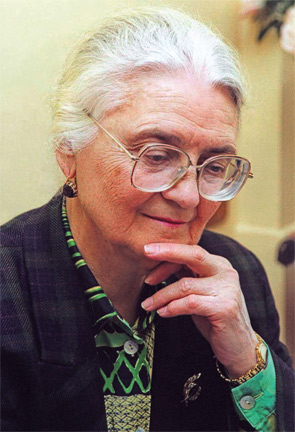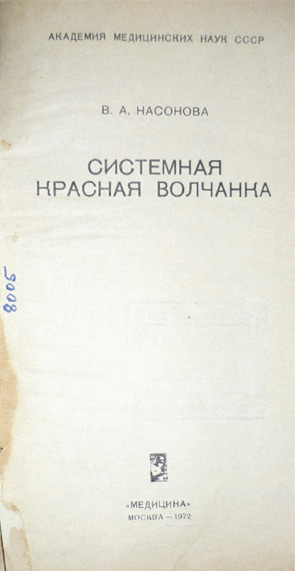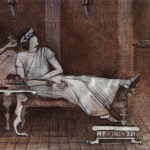

Internationally, the impact of Dr. Nasonova’s career was similarly monumental as historically the only woman president of EULAR.

We are saddened to announce to the ACR membership the February 2, 2011, passing of ACR Honorary Member Valentina Alexandrovna Nasonova, MD, of the State Institute of Rheumatology in Moscow and a full member of the Russian Academy of Medical Sciences (RAMS). Dr. Nasonova’s sizable career contributions domestically and internationally are matched only by descriptions of her by colleagues as a consummate physician scientist and transformational leader, an educator whose regard was sustained by her great humanity and a personality and character of sublime simplicity.
Born in 1923, Dr. Nasonova had eclectic interests, energy, and encyclopedic acumen that fomented major scientific contributions in such diverse areas as systemic lupus erythematosus (SLE), gout, rheumatoid arthritis (RA), early corticosteroid use, and combination immunomodulatory therapies. Most commonly credited with authoring a seminal and classic Russian text on SLE in 1972, she published over 600 articles, monographs, and manuals concerning rheumatic disorders, working classifications, and related discoveries. Dr. Nasonova was section editor for rheumatology of the “Comprehensive Medical Encyclopedia” of the former Soviet Union, editor-in-chief of “Scientific Practical Rheumatology,” and deputy editor of “Therapeutic Archives,” and she served on the editorial boards of numerous other medical publications. The scientific works of Dr. Nasonova are pervasive in Russian national and international medical libraries, with original contributions characterized by in-depth analyses and bold hypotheses and conclusions.
During a career associated with the State Institute of Rheumatology that began with the Institute’s foundation in 1958, Dr. Nasonova acceded to head the Institute in 1970 and served in that capacity for more than 30 years. The scientific and educational evolution of the Institute from that era has been considered inextricably linked to her multifaceted work. Beyond the general advancement of the fundamental departments of the Institute, Dr. Nasonova is credited with the development of distinguished divisions of pediatric rheumatology, rheumatic orthopedics, physiotherapy, and rehabilitation clinics for both adults and children. She opened Russia’s inaugural Centers for Genetic Engineering and Biological Therapy for Osteoporosis Prevention.
Noted as a brilliant lecturer and promoter of scientific knowledge herself, the academician Dr. Nasonova established the format for rheumatology fellowship training in Russia and oversaw the defense of more than 50 PhD and doctoral theses. The clinical and scientific work at the Institute remained steadfast under her resolute management during the unsettling years of transition from the Soviet Union to the Commonwealth of Independent States (CIS). Accounts assert that she was also instrumental in the development of national centers for rheumatic diseases in Ukraine, Kazakhstan, Kyrgyzstan, Moldova, and other CIS principalities. Her protégées can be found working successfully in both academic and clinical rheumatology not only throughout Russia, but also throughout the world.


